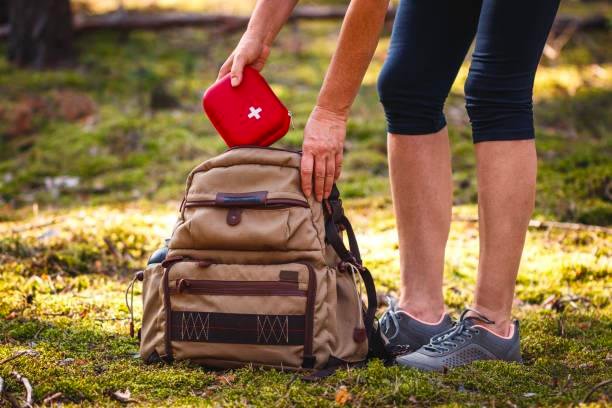Being in the wilderness, surrounded by nature, is a uniquely beautiful experience. At the same time, it brings with it a certain element of unpredictability. Accidents, injuries, and health crises can happen unexpectedly, and being prepared to handle such situations is critical. This is where Wilderness First Aid (WFA) comes in. This guide will help you become a maestro of WFA, arming you with the knowledge and skills you need to respond effectively and quickly to medical emergencies in the great outdoors.
Table of Contents
Why Wilderness First Aid is Important
Expedition healthcare is a fascinating topic that deserves attention. The wilderness, though teeming with life and beauty, is not without its risks. From simple sprains to severe wounds, various health challenges could emerge in such an environment. Understanding the basics of WFA not only gives you the confidence to enjoy your adventures but also ensures that you are equipped to handle emergencies.
Wilderness First Aid Basics: Knowledge is Power
Before setting foot into the wilderness, it’s vital to equip yourself with the right knowledge. According to National Outdoor Leadership School, you should be familiar with the basics such as how to address minor wounds, fractures, heat and cold illnesses, and allergies.
Remember, unlike urban settings, help in wilderness areas may not be immediately accessible. That’s why having fundamental knowledge of first aid in these scenarios becomes crucial. Here are some areas to pay particular attention to.
CPR and AED
CPR and AED are critical skills that everyone venturing into the wilderness should master. You never know when you might have to perform chest compressions or use an Automated External Defibrillator to save a life.
Treating Wounds
Wounds, from minor scrapes to more serious injuries, are common in the wilderness. Knowing how to properly clean, dress, and bandage a wound can prevent infections and further complications.
Handling Hypothermia and Heat Stroke
Extreme weather conditions pose their own unique challenges. Learning the signs of heat stroke and hypothermia, and knowing how to respond, can be lifesaving.
Packing Your Wilderness First Aid Kit
A first aid kit is as essential as your backpack when venturing into the wild. The American Hiking Society recommends including bandages of various sizes, antiseptic wipes, tweezers, a CPR mask, and more. Be sure to also pack personal medications and any specific items that you or your group may need.
Wilderness Survival: Beyond First Aid
WFA is essential, but survival in the wilderness requires more than medical knowledge. It involves skills like fire-starting, finding safe water sources, and identifying edible plants. It’s about learning to coexist with the wilderness rather than seeing it as a hostile environment.
Moreover, for those with an interest in hunting, tools like firearms are often part of the wilderness journey. It’s crucial to understand proper gun handling, maintenance, and storage. If you ever find yourself with a firearm you no longer need or want, remember there are safe and legal ways of selling a gun fast.
Training and Certification: A Step Further
While basic first aid knowledge is a must, getting professional training can take your skills to the next level. Organizations such as the American Red Cross offer Wilderness and Remote First Aid courses. These courses provide comprehensive training and certification, making you a more competent, confident wilderness adventurer.
Final Thoughts: Respect for Nature and Preparedness
Mastering the art of Wilderness First Aid goes hand in hand with developing respect for nature and understanding the risks associated with wilderness exploration. Preparation is key. Armed with the right knowledge, skills, equipment, and attitude, you’re ready to enjoy the vast beauty of the wilderness while staying safe and prepared for any eventuality.
Remember, WFA is not about fostering fear but promoting awareness and preparedness. With these tools in your backpack, you’re well-equipped to venture into the heart of the wilderness and enjoy the enriching experiences it offers.










